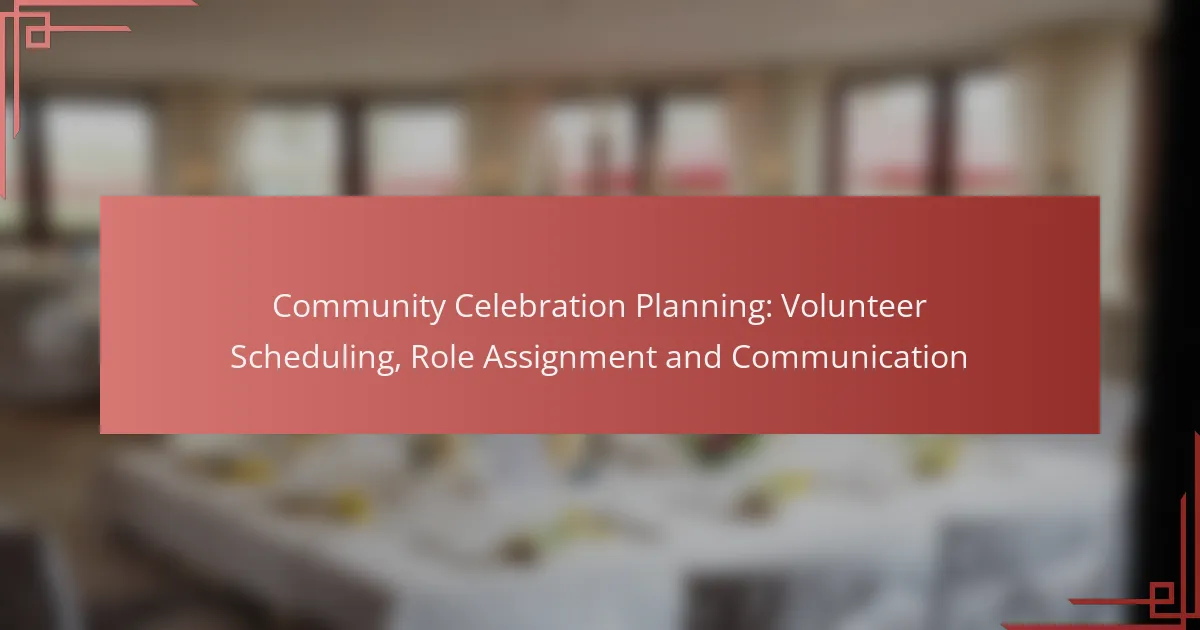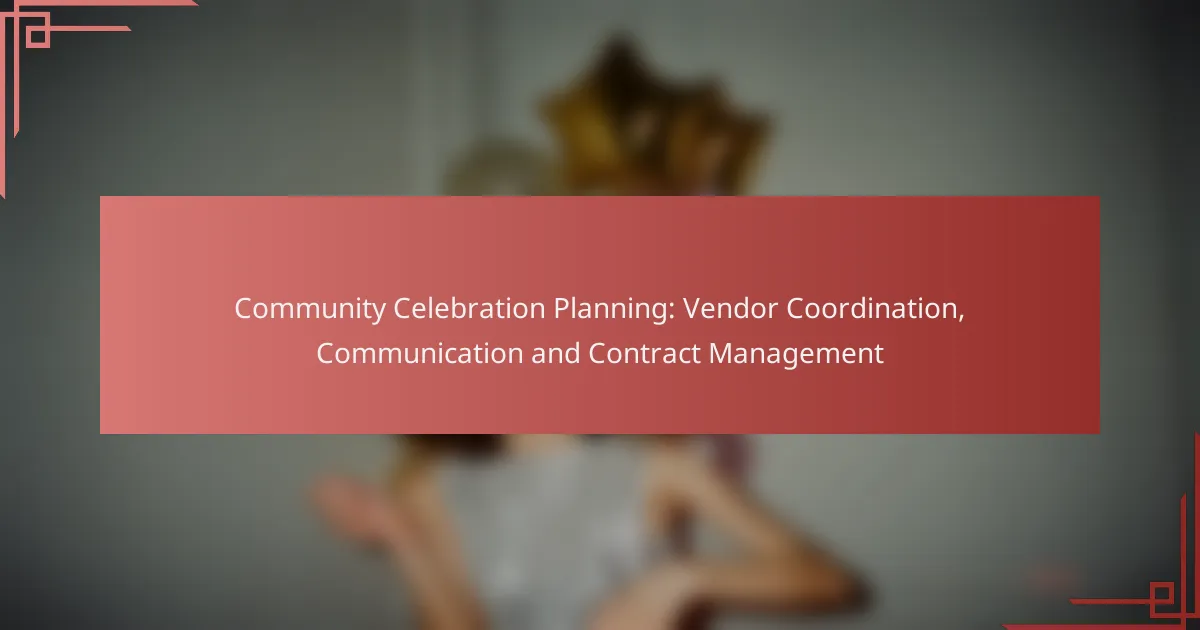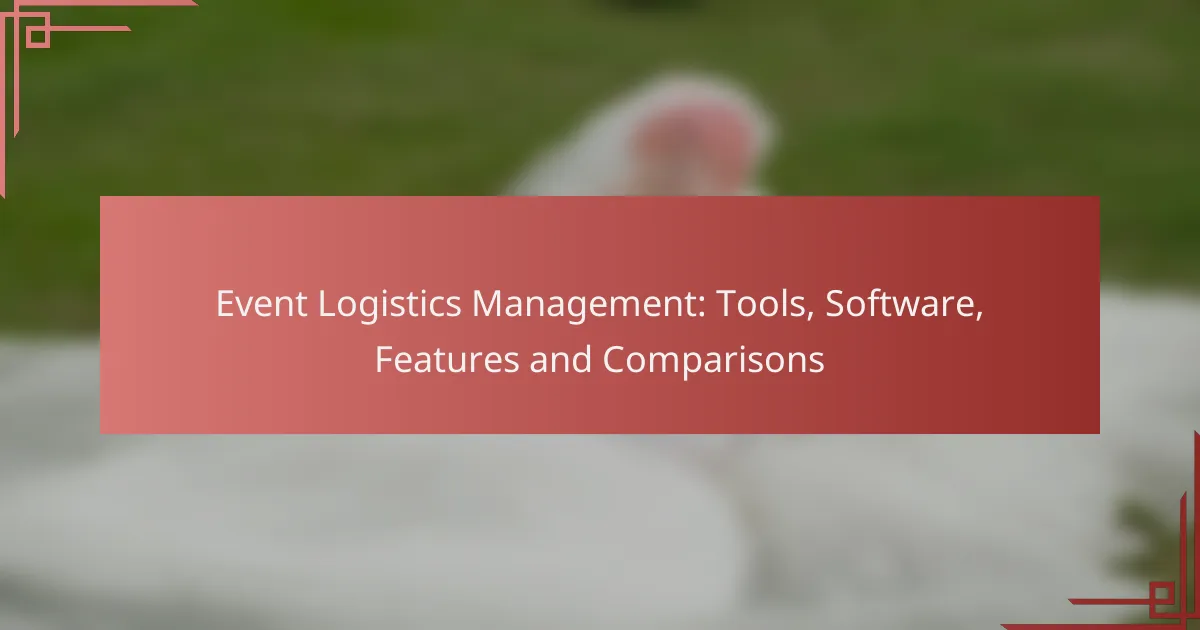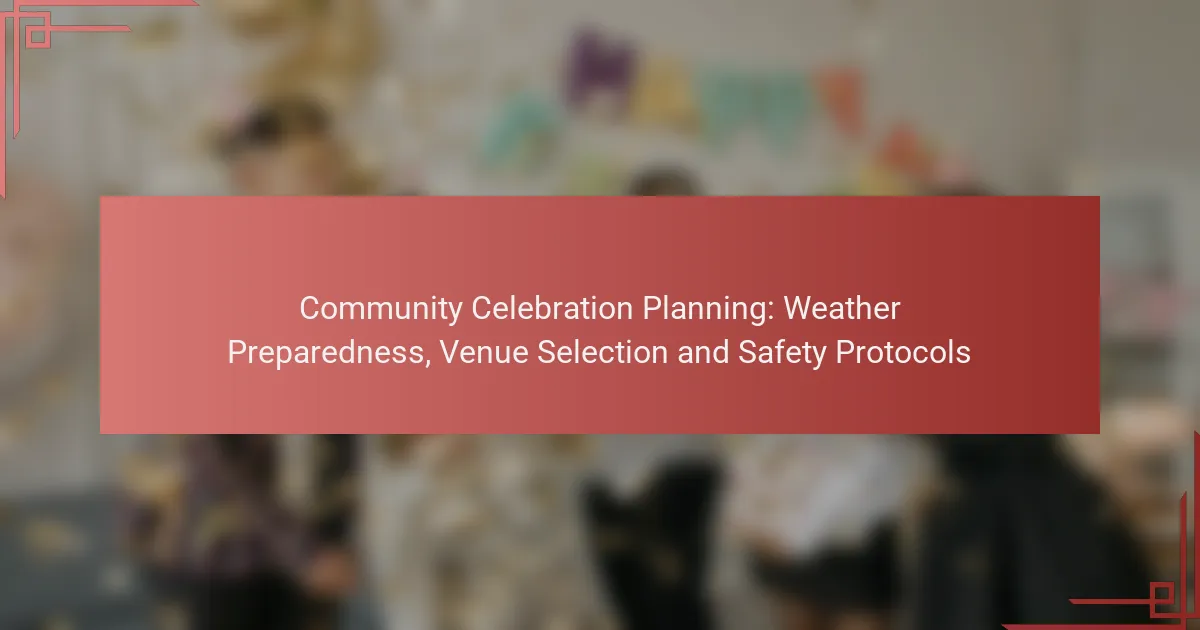Planning a community celebration requires careful volunteer scheduling and role assignment to ensure a successful event. By utilizing strategic tools and fostering clear communication, organizers can enhance participation and streamline operations. Understanding volunteers’ skills and interests is crucial for assigning roles that promote engagement and productivity, ultimately leading to a memorable celebration for all.
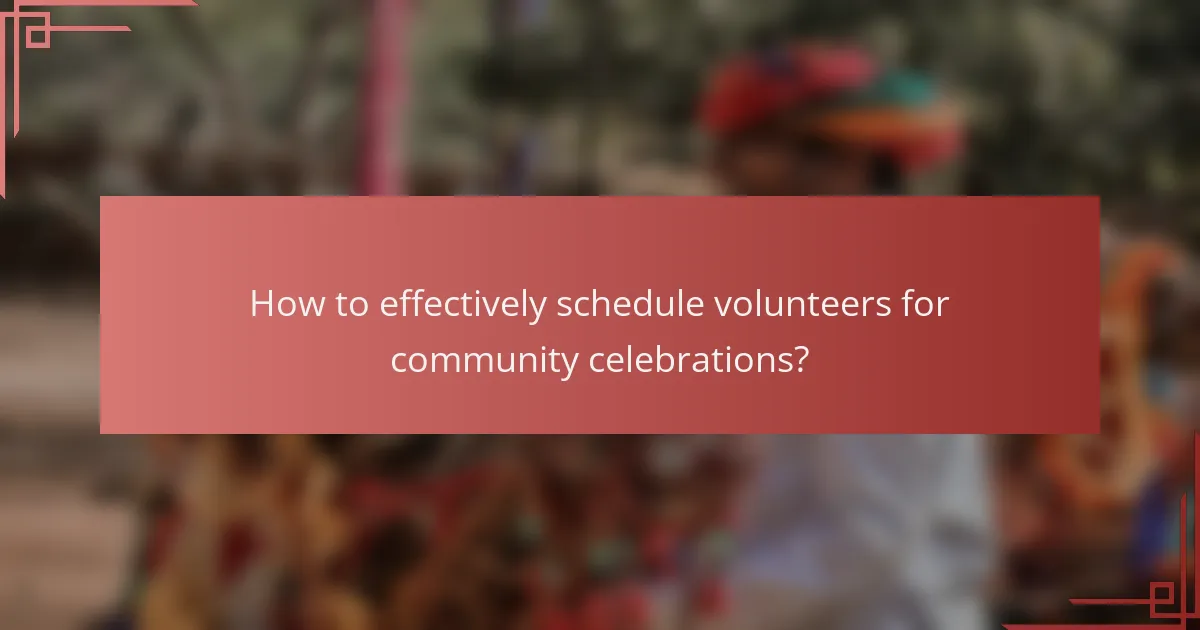
How to effectively schedule volunteers for community celebrations?
Effectively scheduling volunteers for community celebrations involves strategic planning and clear communication. Utilizing tools and methods that streamline the process can enhance participation and ensure that all roles are filled efficiently.
Utilize scheduling software like SignUpGenius
Scheduling software such as SignUpGenius simplifies the process of organizing volunteers by allowing them to choose their preferred shifts and roles online. This platform provides a user-friendly interface where volunteers can see available slots and sign up accordingly.
Consider integrating features like automatic reminders and the ability to track volunteer hours. This not only keeps volunteers informed but also helps organizers manage attendance and participation effectively.
Implement a shared Google Calendar
A shared Google Calendar can serve as a centralized hub for all event-related scheduling. By inviting volunteers to access the calendar, everyone can view important dates, shift assignments, and deadlines in real-time.
Encourage volunteers to set notifications for their assigned shifts. This ensures they receive timely reminders and reduces the likelihood of no-shows, which can disrupt event planning.
Establish a clear timeline for shifts
Creating a clear timeline for volunteer shifts is crucial for smooth event operations. Define the start and end times for each shift and communicate these details well in advance to all volunteers.
Consider using a visual timeline or a simple chart to outline when each role is needed. This helps volunteers understand their commitments and plan accordingly, fostering a sense of responsibility.
Communicate availability expectations
Clearly communicating availability expectations is essential for effective volunteer scheduling. Make sure volunteers understand how many hours they are expected to commit and any flexibility that may be available.
Provide a platform for volunteers to indicate their availability upfront. This can help in assigning roles that match their schedules, ultimately leading to higher satisfaction and retention rates.
Incorporate reminders and follow-ups
Incorporating reminders and follow-ups is vital to ensure volunteers remain engaged and informed. Use automated emails or text messages to remind volunteers of their upcoming shifts and any important details they need to know.
Follow up with volunteers after the event to thank them for their participation and gather feedback. This not only shows appreciation but also helps improve future volunteer scheduling efforts.
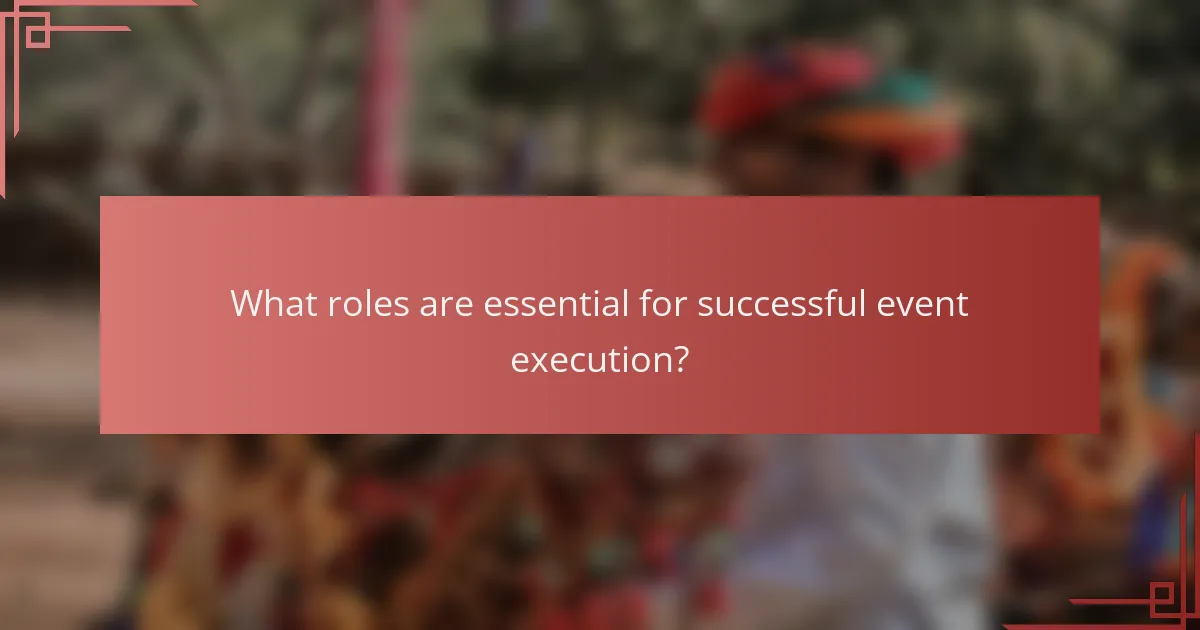
What roles are essential for successful event execution?
Successful event execution relies on clearly defined roles that ensure smooth operations. Key roles include an event coordinator, logistics manager, volunteer supervisor, marketing and outreach lead, and safety and first aid officer.
Event coordinator
The event coordinator is the central figure responsible for overseeing the entire event. This role involves planning, organizing, and ensuring that all aspects of the event align with the overall vision and goals.
Key tasks include setting timelines, managing budgets, and coordinating with other team members. Effective communication and strong organizational skills are essential for this position to handle any unexpected challenges that may arise.
Logistics manager
The logistics manager focuses on the operational details that make the event run smoothly. This includes managing venue arrangements, equipment rentals, and transportation for attendees and materials.
Consider creating a checklist of logistical needs, such as seating arrangements, sound systems, and catering services. A well-organized logistics plan can help prevent last-minute issues and ensure a seamless experience for participants.
Volunteer supervisor
The volunteer supervisor is responsible for recruiting, training, and managing volunteers during the event. This role is crucial for ensuring that all tasks are covered and that volunteers feel supported and motivated.
Establish clear roles for volunteers and provide them with necessary training sessions before the event. Regular check-ins during the event can help address any concerns and keep everyone on track.
Marketing and outreach lead
The marketing and outreach lead is tasked with promoting the event to attract attendees and participants. This role involves creating marketing materials, managing social media campaigns, and engaging with the community.
Utilize various channels such as local newspapers, online platforms, and community boards to maximize outreach. Establishing partnerships with local businesses can also enhance visibility and support for the event.
Safety and first aid officer
The safety and first aid officer ensures that all health and safety regulations are met during the event. This role includes preparing for emergencies and providing first aid support if needed.
It is essential to have a clear emergency plan in place and to communicate it to all staff and volunteers. Consider having first aid kits readily available and ensuring that at least one trained individual is on-site throughout the event.
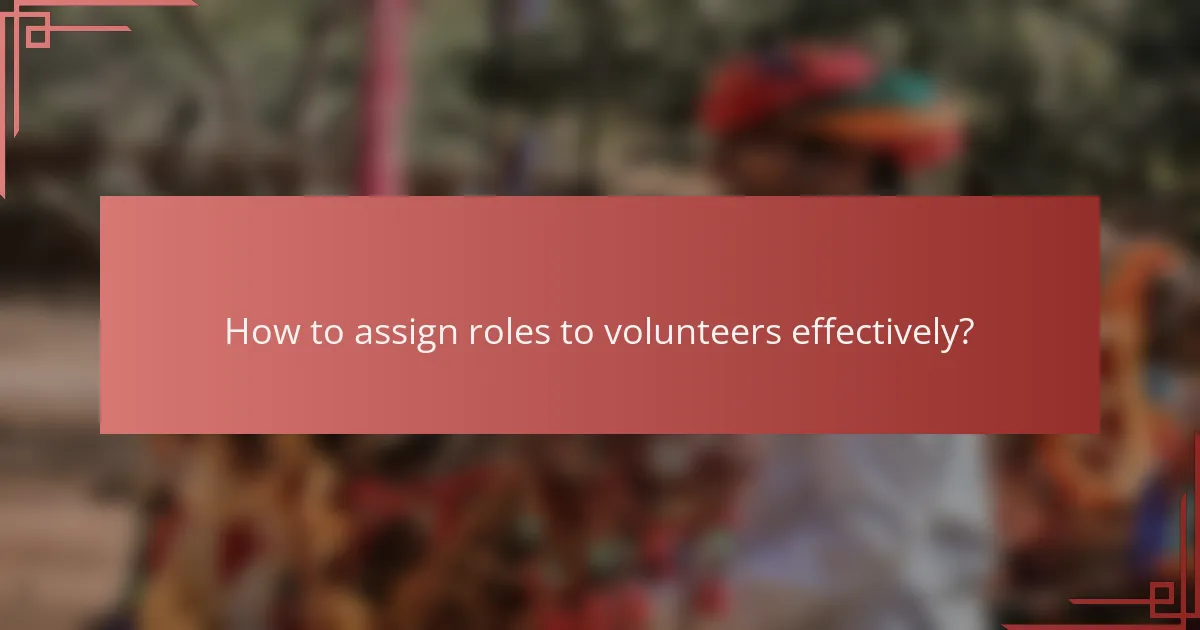
How to assign roles to volunteers effectively?
Assigning roles to volunteers effectively involves understanding their skills and interests, ensuring a good fit for both the organization and the volunteers. This process enhances engagement and productivity, leading to a successful community celebration.
Conduct skills assessments
Skills assessments help identify the strengths and capabilities of each volunteer. You can use surveys or informal interviews to gather information about their previous experiences, skills, and preferences. This data will guide you in matching volunteers to roles that suit their abilities.
Consider using a simple rating system where volunteers can self-assess their skills on a scale of 1 to 5. This allows for quick comparisons and helps prioritize candidates for specific tasks.
Match roles to volunteer interests
Aligning volunteer roles with their interests increases motivation and satisfaction. After conducting skills assessments, discuss with volunteers what aspects of the event excite them the most, whether it’s logistics, outreach, or creative tasks.
For example, if a volunteer expresses a passion for event planning, consider assigning them to coordinate activities or manage schedules. This alignment fosters a more enthusiastic and committed volunteer base.
Use a role assignment matrix
A role assignment matrix is a visual tool that helps organize and clarify volunteer roles. Create a grid that lists volunteers on one axis and tasks on the other, marking where each volunteer’s skills and interests align with specific roles.
This matrix not only simplifies the assignment process but also allows for easy adjustments if a volunteer needs to switch roles or if additional help is required in certain areas.
Provide training and orientation sessions
Training and orientation sessions are crucial for preparing volunteers for their assigned roles. These sessions should cover the event’s objectives, specific responsibilities, and any necessary skills or procedures.
Consider scheduling a few hours of training prior to the event, ensuring that volunteers feel confident and informed. Providing materials or resources for ongoing reference can also enhance their performance during the celebration.
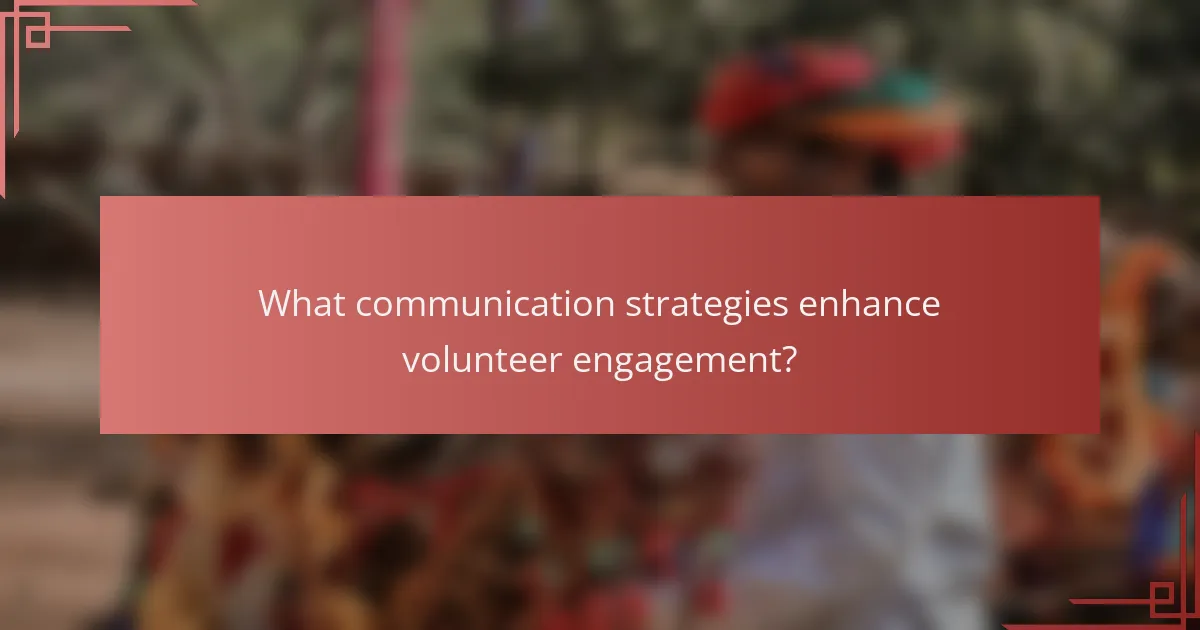
What communication strategies enhance volunteer engagement?
Effective communication strategies are crucial for enhancing volunteer engagement. Utilizing the right tools and methods can foster collaboration, streamline scheduling, and ensure everyone is informed and motivated.
Utilize group messaging apps like WhatsApp
Group messaging apps such as WhatsApp facilitate real-time communication among volunteers, making it easier to coordinate activities and share updates. These platforms allow for quick exchanges of information, which can significantly enhance responsiveness and engagement.
When using WhatsApp, consider creating dedicated groups for specific tasks or events. This helps keep discussions focused and ensures that relevant information reaches the right people. Additionally, utilizing features like polls can help gauge volunteer availability and preferences efficiently.
To maximize effectiveness, set clear guidelines for communication within the group. Encourage volunteers to check messages regularly and respond promptly. Avoid overwhelming the group with unnecessary messages to maintain engagement and ensure important updates are not missed.
